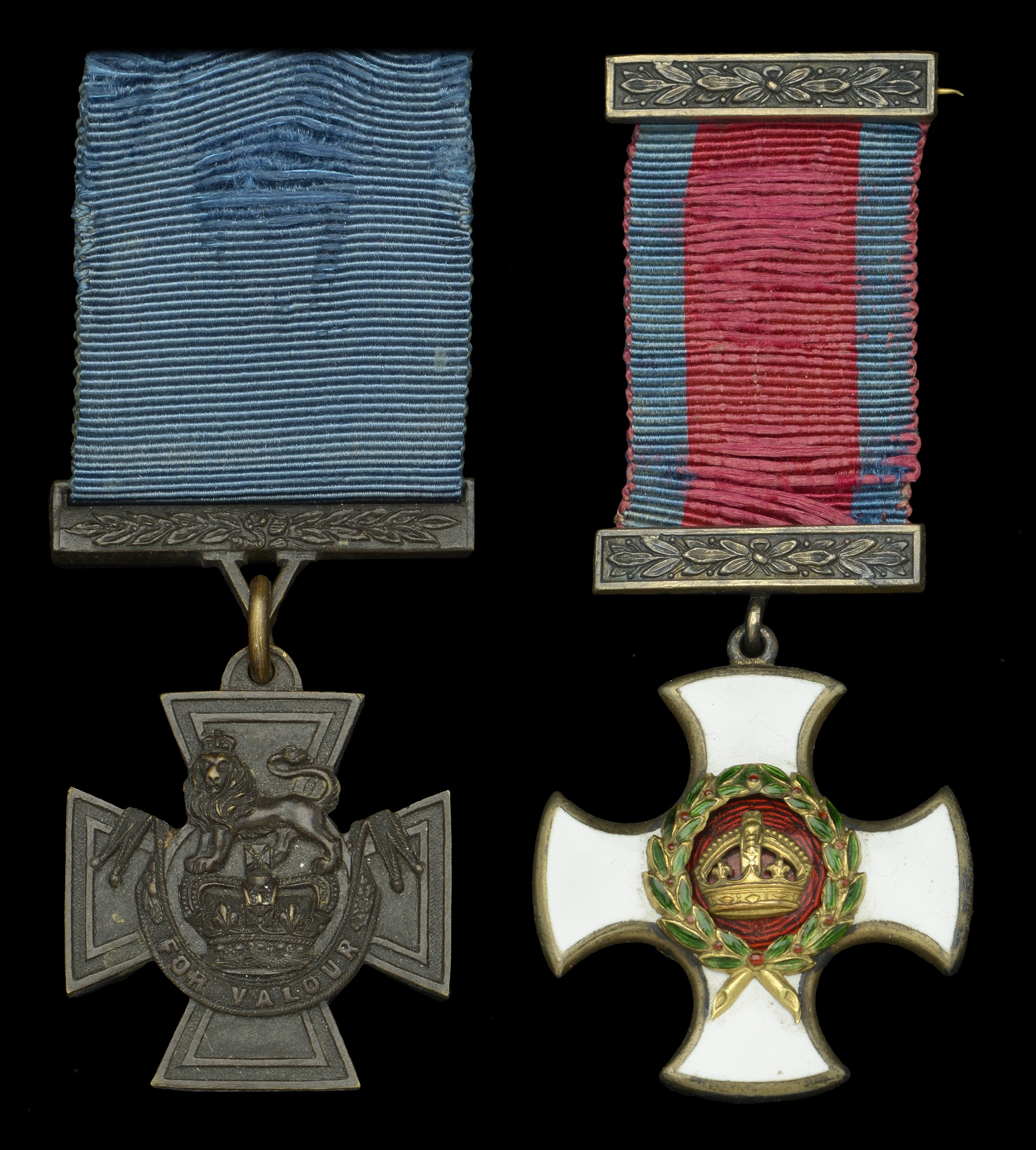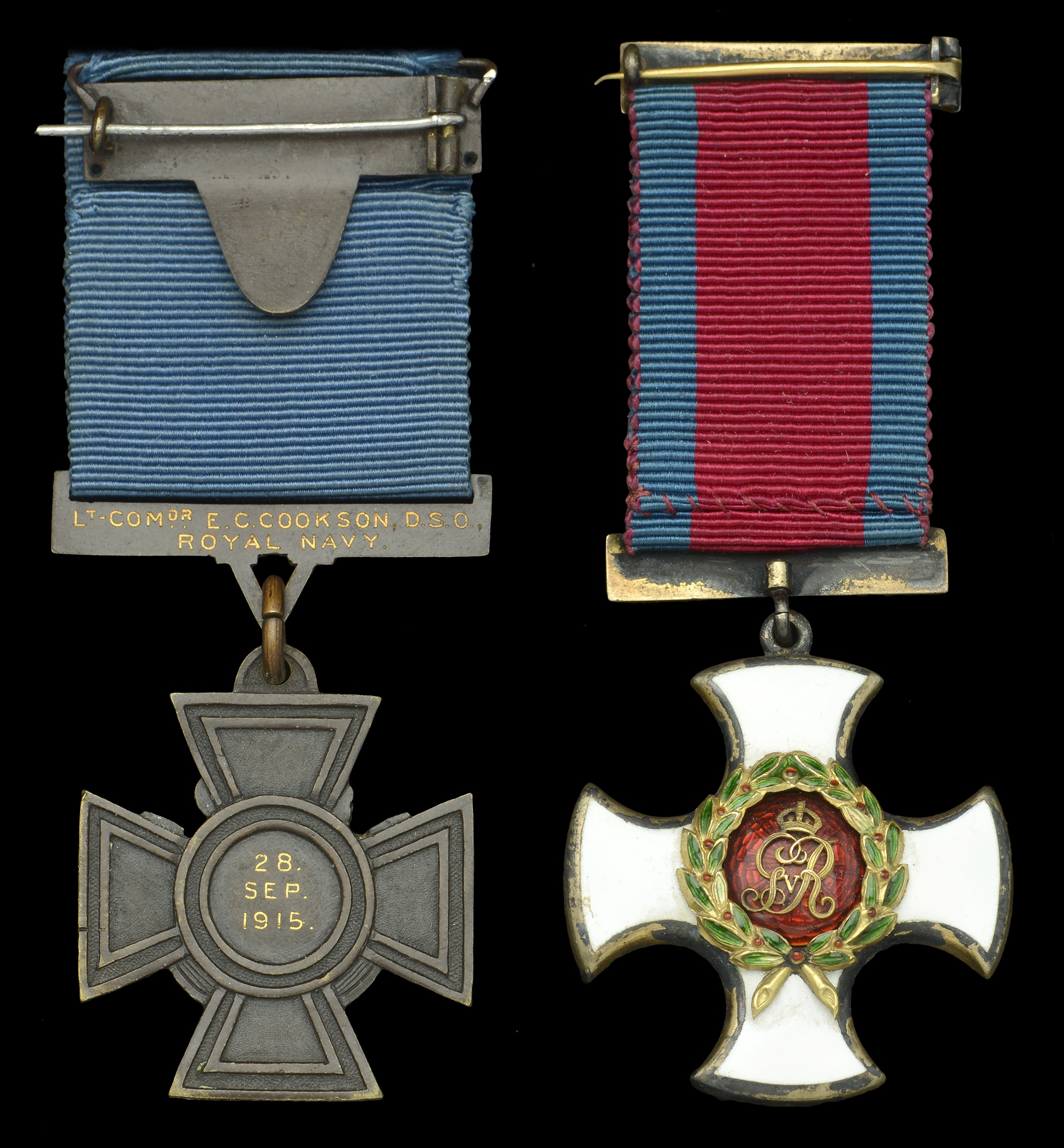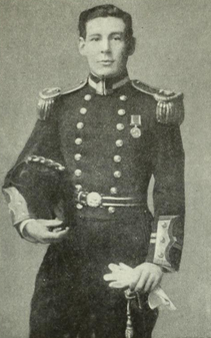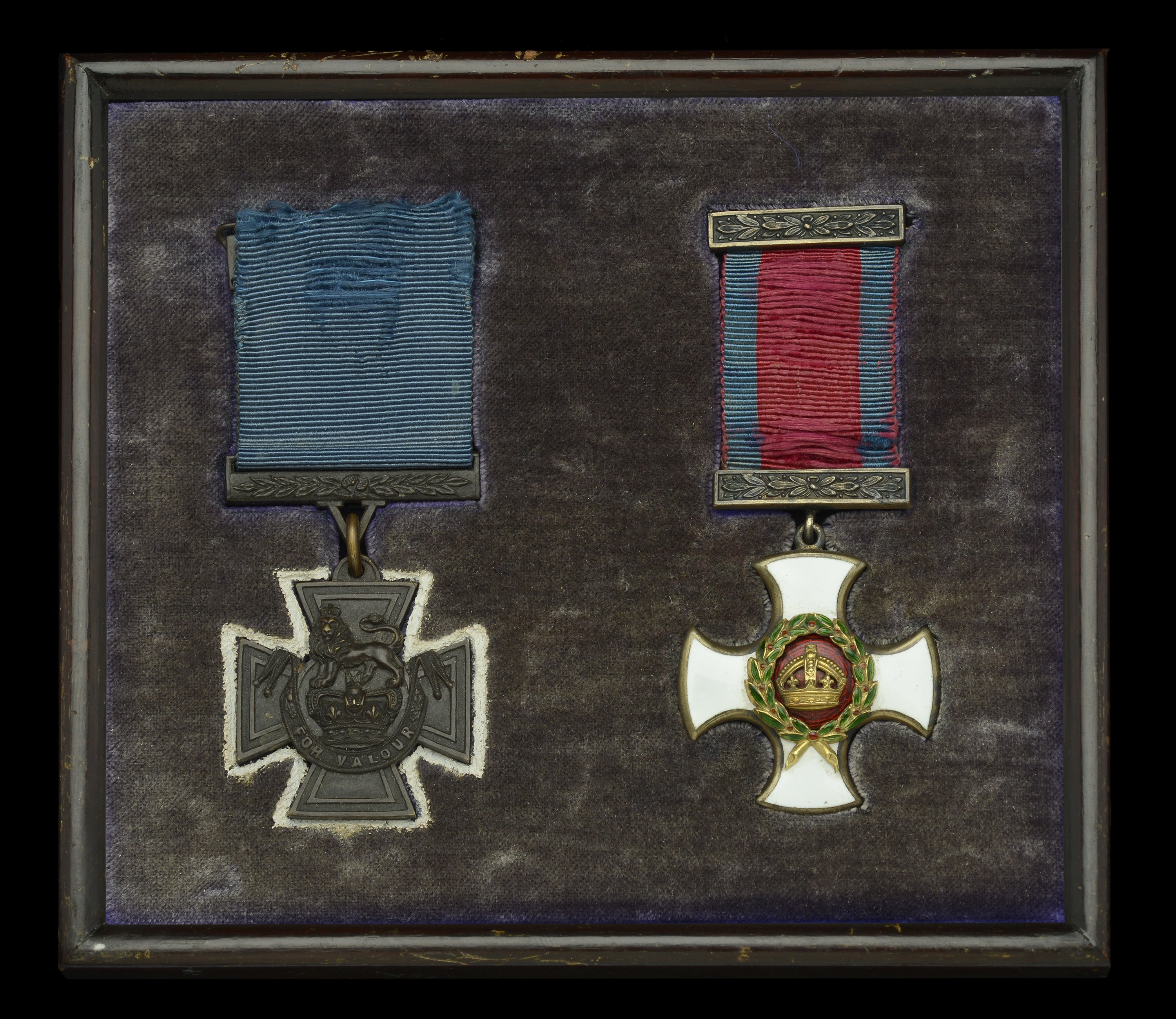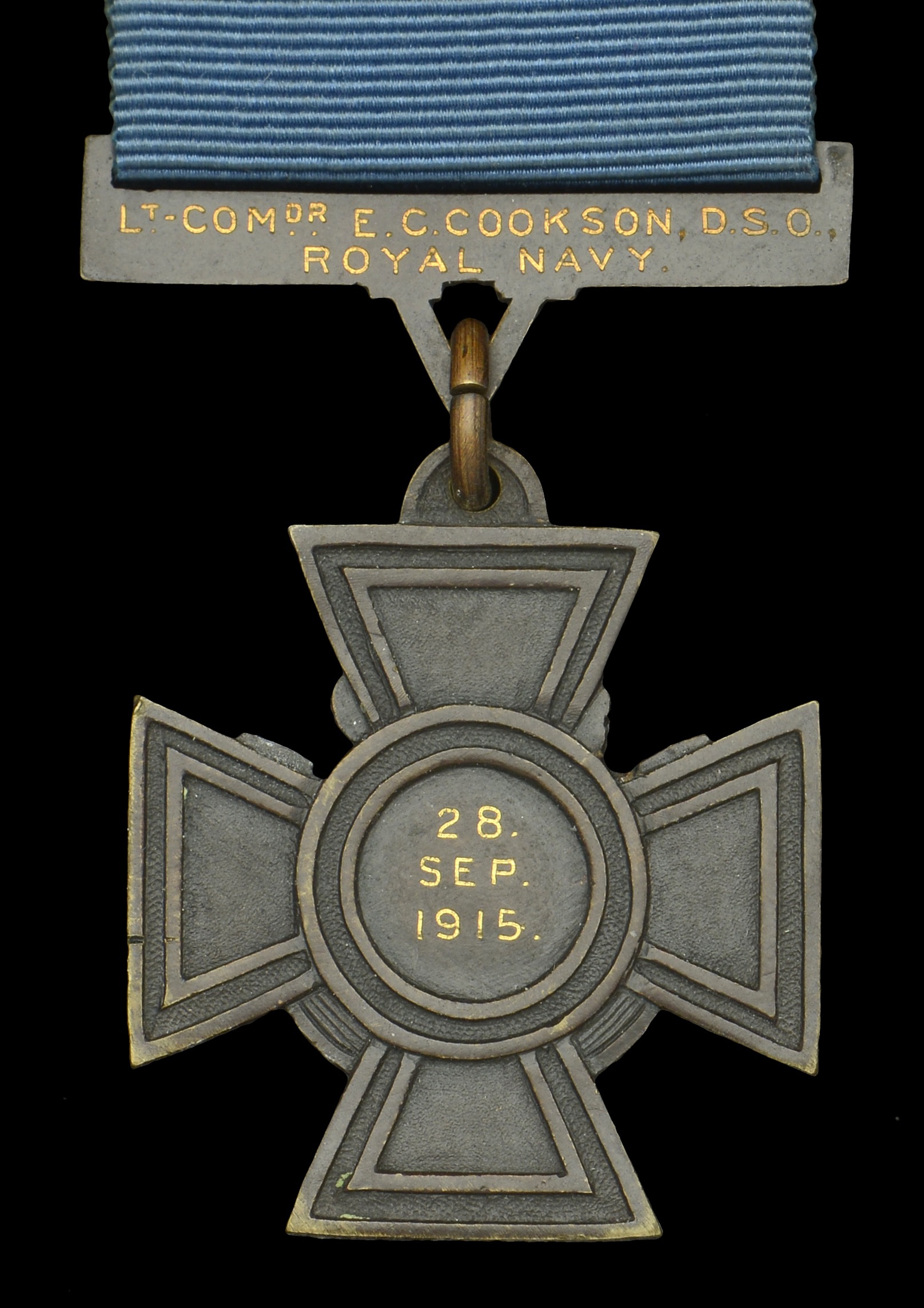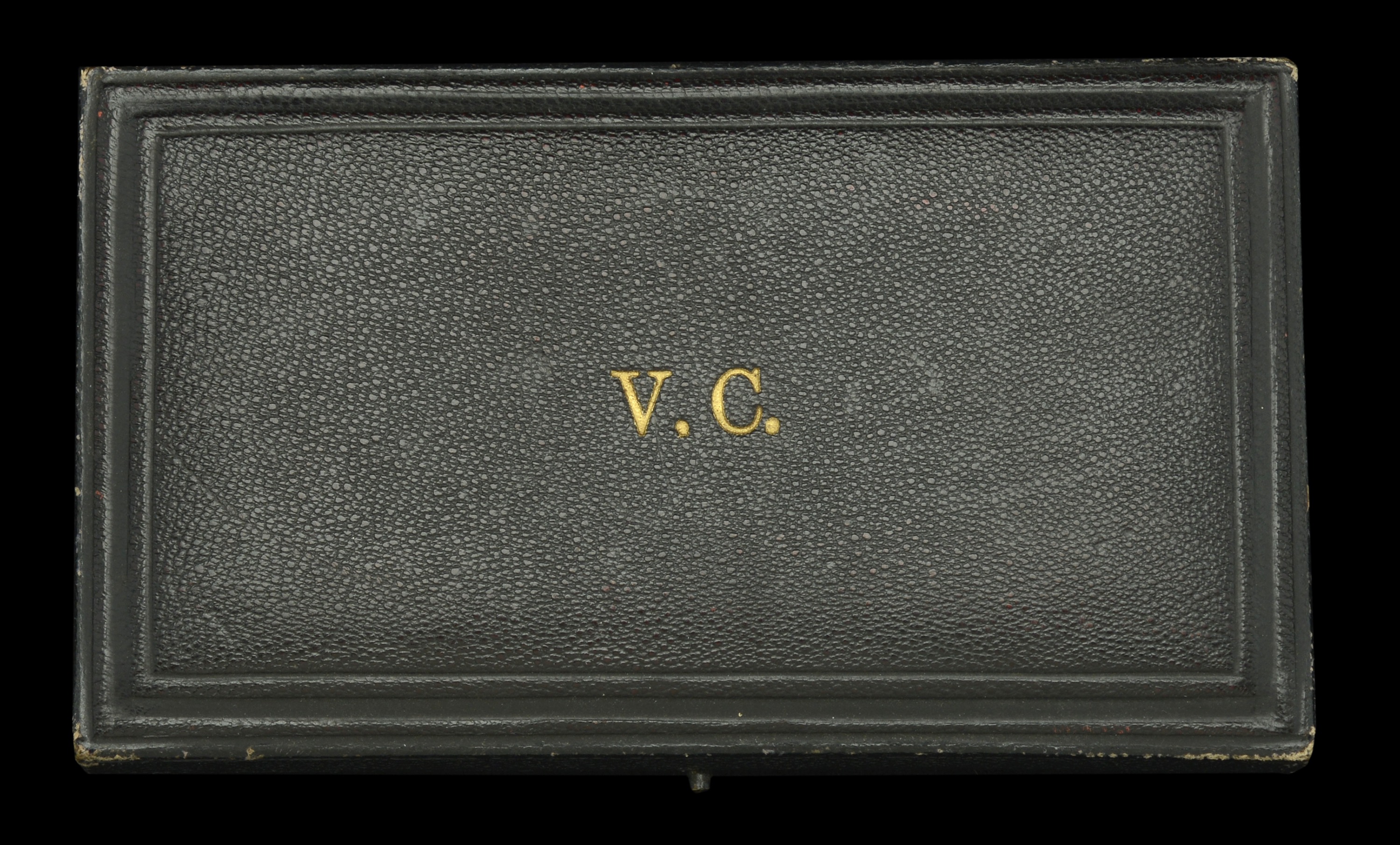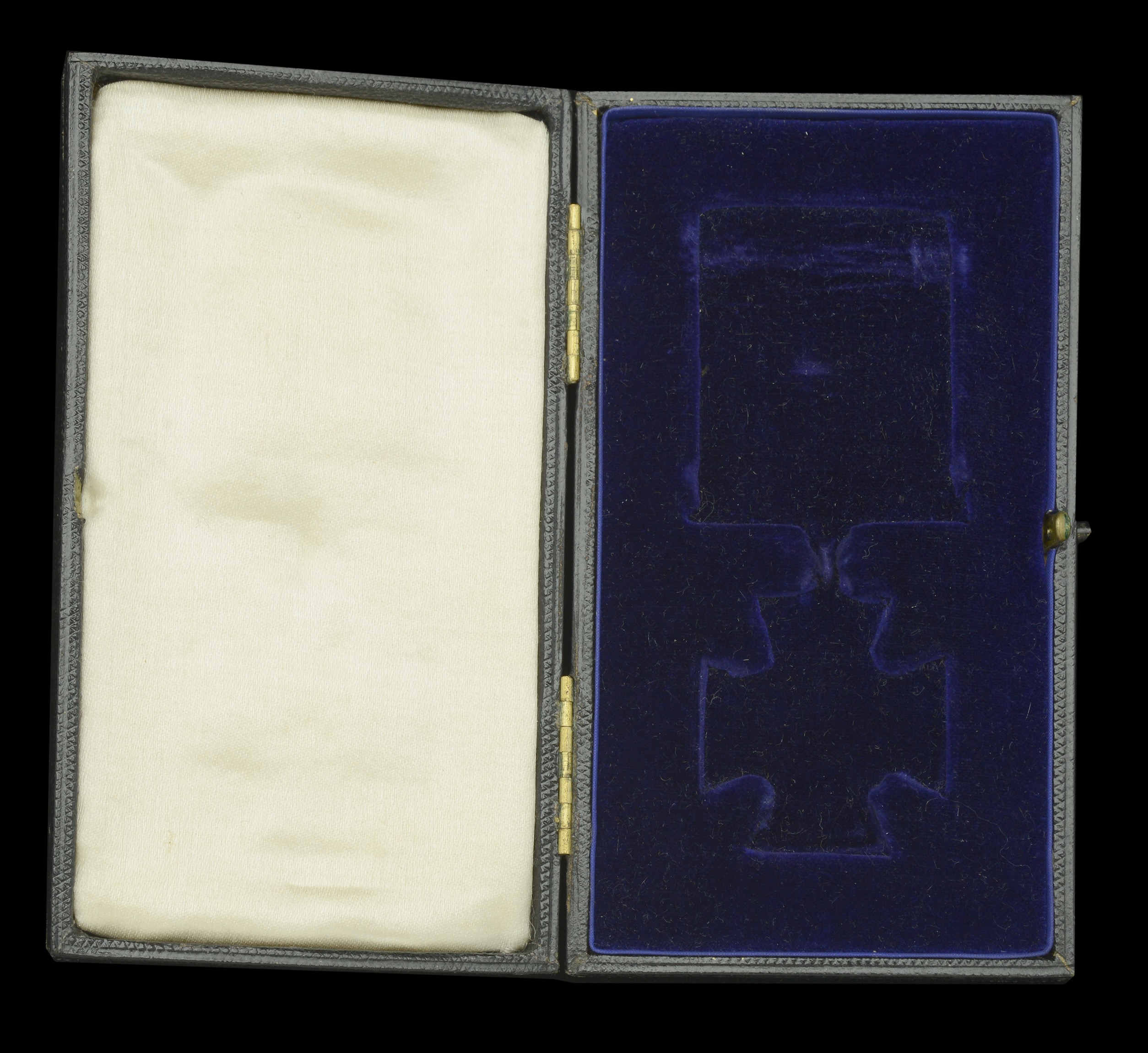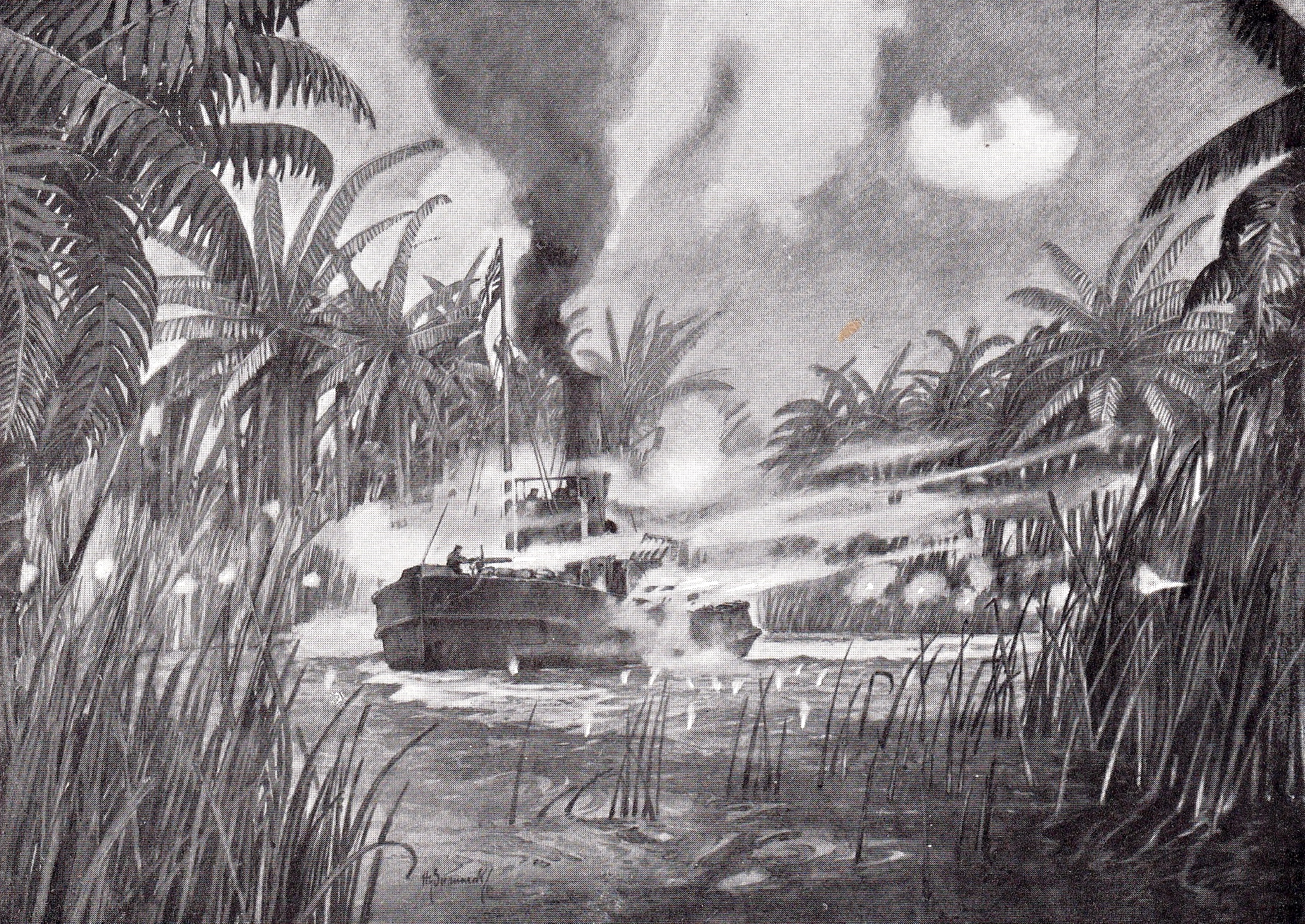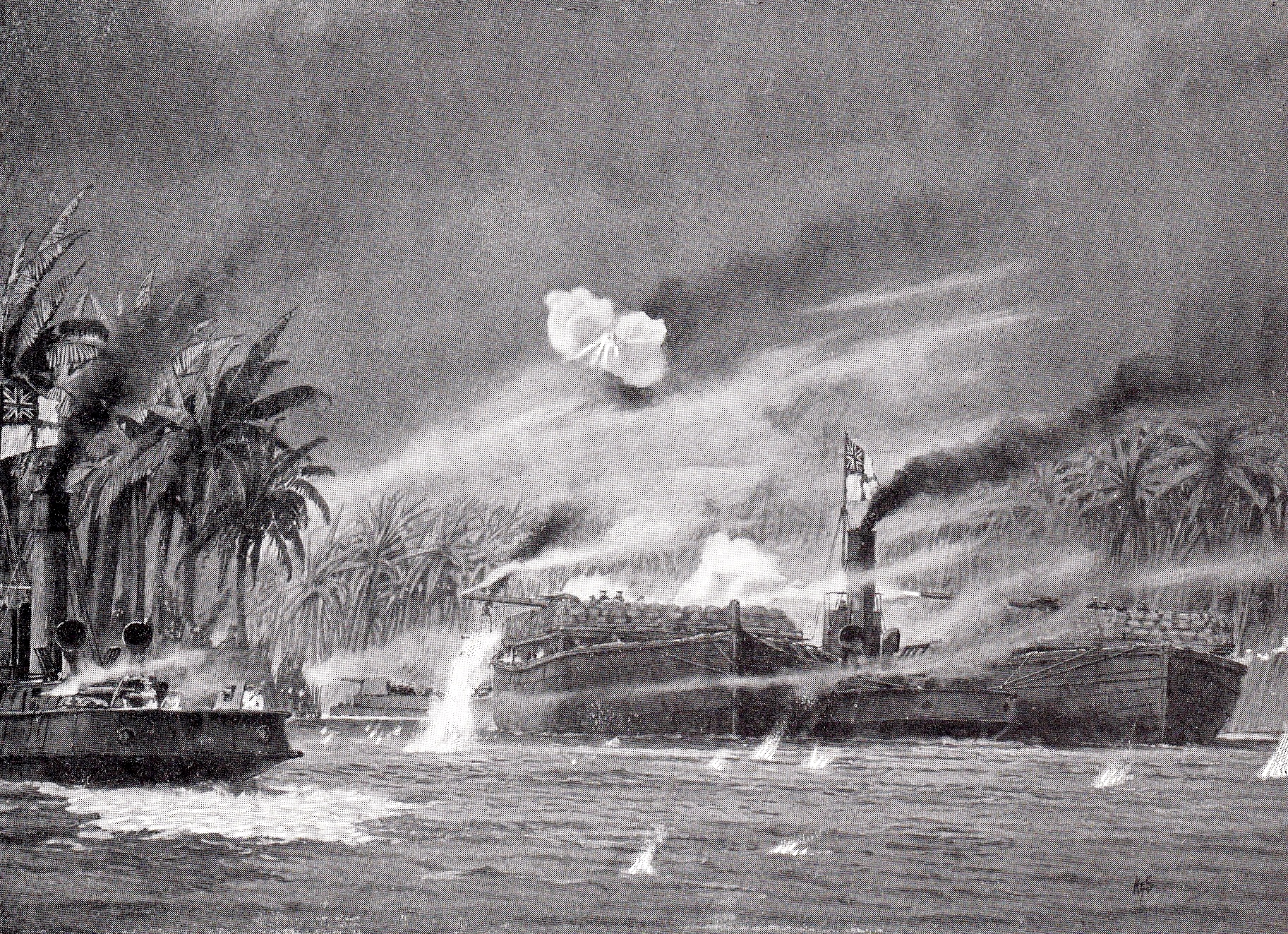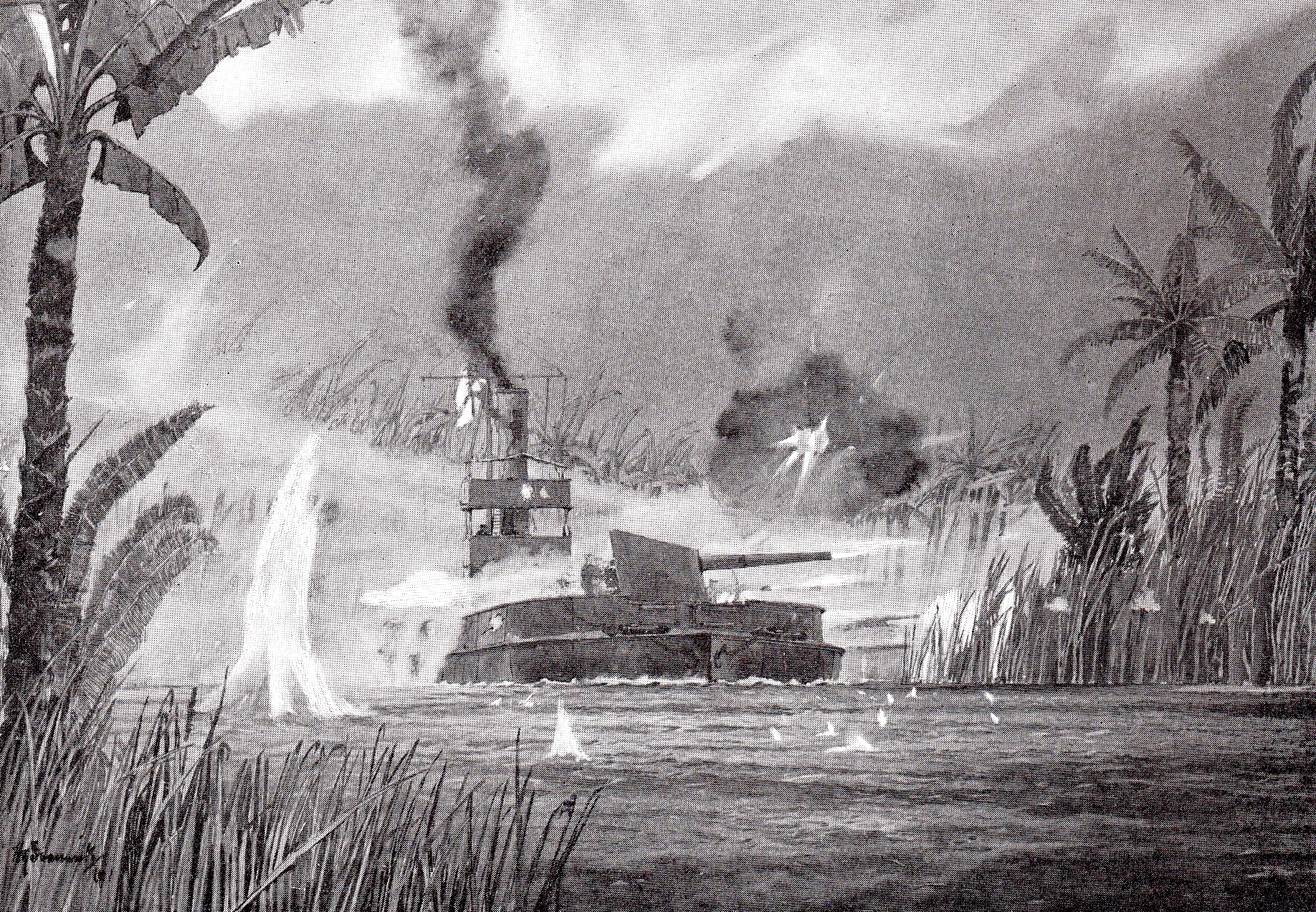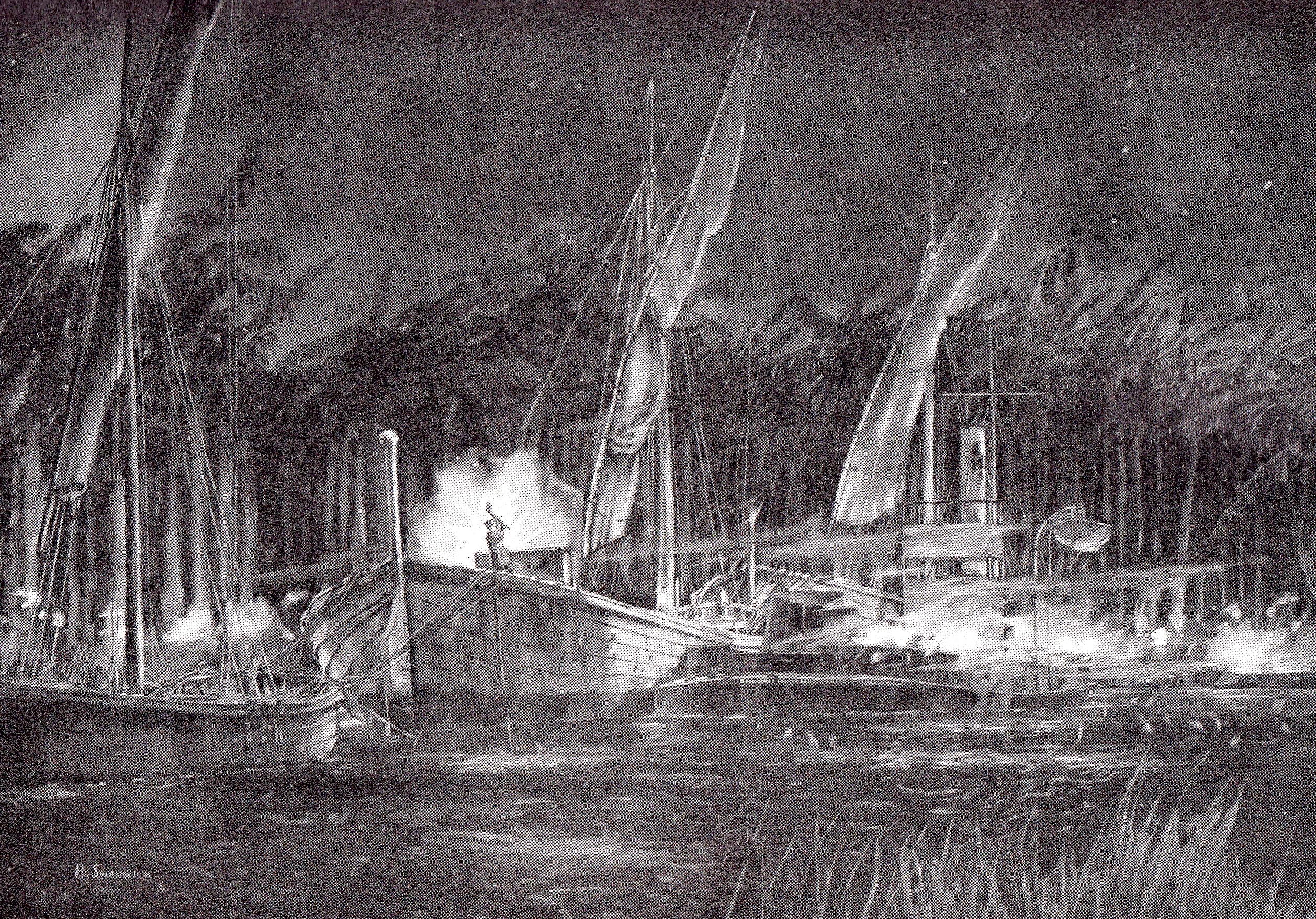The outstanding Great War Tigris Flotilla operations posthumous V.C., Euphrates Flotilla operations D.S.O. awarded to Lieutenant-Commander E. C. Cookson, Royal Navy: severely wounded in winning the latter distinction for extricating the armed launch Shushan out of an Arab ambush in May 1915, he paid the ultimate price for his gallantry in the river gunboat Comet four months later, when, under a storm of point-blank fire, he leapt aboard a Turkish dhow brandishing an axe - a fellow officer later observed ‘there were more bullet holes in him than they cared to count’ Victoria Cross, reverse of suspension bar engraved ‘Lt.-Comdr. E. C. Cookson, D.S.O., Royal Navy’, reverse of Cross dated ‘28 Sep. 1915’, with an old fitted case, the lid gilt inscribed ‘V.C.’; Distinguished Service Order, G.V.R., silver-gilt and enamel, both housed in a old fitted glazed display case, loose centre on the last, otherwise extremely fine (2) £180,000-£220,000 --- Importation Duty This lot is subject to importation duty of 5% on the hammer price unless exported outside the UK --- --- Provenance: Sotheby’s, January 1977, when sold by Cookson’s direct descendants. V.C. London Gazette 21 January 1916: ‘The King has been graciously pleased to approve of the grant of the Victoria Cross to Lieutenant-Commander Edgar Christopher Cookson, D.S.O., R.N., in recognition of the following act of most conspicuous gallantry during the advance on Kut-el-Amara: On 28 September 1915, the river gunboat Comet had been ordered with other gunboats to examine, and if possible destroy, an obstruction placed across the river by the Turks. When the gunboats were approaching the obstruction, a very heavy rifle and machine-gun fire was opened on them from both banks. An attempt to sink the centre dhow of the obstruction by gunfire having failed, Lieutenant-Commander Cookson ordered the Comet to be placed alongside, and himself jumped on to the dhow with an axe and tried to cut the wire hawsers connecting it with the two other craft forming the obstruction. He was immediately shot in several places and died within a few minutes.’ D.S.O. London Gazette 13 September 1915: ‘Lieutenant-Commander Cookson was conducting a reconnaissance up a creek of the Euphrates, west of Qurnah, in the armed launch Shushan on 9 May 1915, when he was heavily attacked by Arabs concealed in the reeds. Although severely wounded early in the action, he resumed command after his wounds had been temporarily dressed, and succeeded in most ably extricating the vessel from a most perilous position under heavy rifle fire.’ Edgar Christopher Cookson was born at Cavendish Park, Tranmere, Cheshire, in December 1883, the younger son of Captain William Edgar de Crackenthorpe Cookson, R.N. Receiving his early education at Hazelhurst, Frant, he entered the Royal Navy as a Cadet in Britannia in September 1897, where, according to his official service record, he quickly came to the notice of his superiors: ‘Tried by the Portsmouth Magistrates for creating a disturbance at a music hall and using obscene language in the streets: he should not have been out of the college, being confined to college at the time. Deprived of three months time and Their Lordships severe displeasure expressed. To be reported on the end of three months.’ Here, then, early signs of an adventurous character whose youthful transgressions were quickly brought to heel by his seniors, and he duly passed out as a Midshipman with an appointment in H.M.S. Jupiter in the Channel Squadron. Removing to the Dido in early 1900, he witnessed active service off China during the Boxer Rebellion (Medal), and was advanced to Sub. Lieutenant in February 1903. And by the outbreak of hostilities in August 1914, he was serving as a recently promoted Lieutenant-Commander in the sloop Clio in the Far East. Immediate D.S.O. Ordered to Basra to reinforce the Navy’s small flotilla operating on the Euphrates and Tigris in Mesopotamia in early 1915, the Clio and her consort, Espiegle, were largely incapacitated from further operations owing to the shallowness of the waters that had to be navigated, and, in their place, a remarkable ‘gallimaufry of vessels’ was formed, a flotilla best described by Colonel Sir Mark Sykes: ‘There are paddle steamers which once plied with passengers and now waddle along with a barge on either side, one perhaps containing a portable wireless station and the other bullocks for heavy guns ashore; there are once respectable tugs which stagger along under the weight of boiler plating - to protect them from the enemy’s fire - and are armed with guns of varying calibre; there is a launch which pants indignantly between batteries of 4.7s, looking like a sardine between two cigarette-boxes; there is a steamer with a Christmas-tree growing amidships, in the branches of which its officers fondly imagine they are invisible to friend or foe. There is also a ship which is said to have started life as an aeroplane in Singapore, but shed its wings, kept its propeller, took to water, and became a hospital. And this great fleet is the cavalry screen, advance guard, rear guard, flank guard, railway, general headquarters, heavy artillery, line of communication, supply depot, police force, field ambulance, aerial hangar and base of supply of the Mesopotamian Expedition.’ Among this ‘great fleet’ was the newly commissioned stern-wheel river launch Shushan and, in April, Cookson was appointed to her command. Nor did it take long for him to make his mark - Deeds That Thrill the Empire takes up the story: ‘It was in the early days of the advance on Kut-el-Amara, when the advanced sections of our forces had reached the junction of the Tigris and Euphrates; and before pushing on along the valley of the former river, it was necessary to ascertain whether any considerable body of enemy troops had withdrawn up the Euphrates with the intention of coming down upon our lines of communication after the main force had passed on. The task of carrying out the reconnaissance fell to Lieutenant-Commander Cookson and his armed launch, the Shushan. The little steamer plugged her way up the Euphrates for some distance, a sharp look-out being kept on either side; but no sign of the enemy was discovered. Presently Cookson came to a tributary branching off to the left, and, impelled more by instinct than anything else, slackened the speed of the lumbering launch and steered her out of the main stream between the closer banks of the creek. On either side the tributary was flanked by a dense growth of rushes, which gently swayed in the wash of a passing vessel. For some distance the Shushan pushed on, the men on deck scanning every yard of the banks as they passed, still without finding a trace of a living soul. The Lieutenant-Commander was about to give up this particular part of his search as useless, and had already given orders preparatory to putting the vessel about for the return journey, when suddenly from among the rushes on both sides of the creek there burst forth a furious fusillade of rifle-fire. The Arabs, lying concealed amidst and behind the dense-growing rushes, could not be seen; but the guns, machine guns and rifles on board the Shushan instantly got to work and rained a steady stream of bullets along the banks. With all possible haste, but still all too slowly, the cumbersome Shushan was turned round in mid-stream, and off she set at the best of her poor speed to break out of the hornet’s nest into which she had stumbled. The enemy had disposed themselves well, but fortunately the launch had been well fitted up for the work she had to do,...























